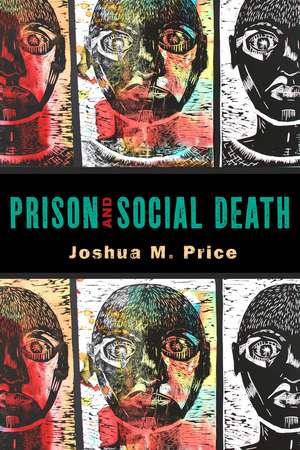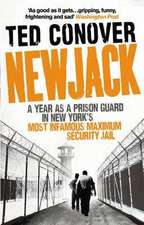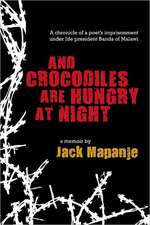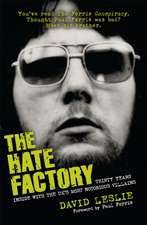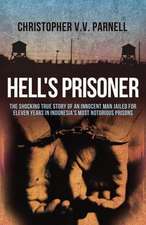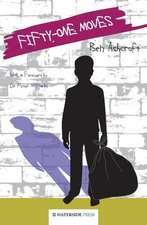Prison and Social Death: Critical Issues in Crime and Society
Autor Joshua M. Priceen Limba Engleză Paperback – iul 2015
The United States imprisons more of its citizens than any other nation in the world. To be sentenced to prison is to face systematic violence, humiliation, and, perhaps worst of all, separation from family and community. It is, to borrow Orlando Patterson’s term for the utter isolation of slavery, to suffer “social death.” In Prison and Social Death, Joshua Price exposes the unexamined cost that prisoners pay while incarcerated and after release, drawing upon hundreds of often harrowing interviews conducted with people in prison, parolees, and their families.
Price argues that the prison separates prisoners from desperately needed communities of support from parents, spouses, and children. Moreover, this isolation of people in prison renders them highly vulnerable to other forms of violence, including sexual violence. Price stresses that the violence they face goes beyond physical abuse by prison guards and it involves institutionalized forms of mistreatment, ranging from abysmally poor health care to routine practices that are arguably abusive, such as pat-downs, cavity searches, and the shackling of pregnant women. And social death does not end with prison. The condition is permanent, following people after they are released from prison. Finding housing, employment, receiving social welfare benefits, and regaining voting rights are all hindered by various legal and other hurdles. The mechanisms of social death, Price shows, are also informal and cultural. Ex-prisoners face numerous forms of distrust and are permanently stigmatized by other citizens around them.
A compelling blend of solidarity, civil rights activism, and social research, Prison and Social Death offers a unique look at the American prison and the excessive and unnecessary damage it inflicts on prisoners and parolees.
| Toate formatele și edițiile | Preț | Express |
|---|---|---|
| Paperback (1) | 265.49 lei 6-8 săpt. | |
| Rutgers University Press – iul 2015 | 265.49 lei 6-8 săpt. | |
| Hardback (1) | 825.88 lei 6-8 săpt. | |
| Rutgers University Press – iul 2015 | 825.88 lei 6-8 săpt. |
Din seria Critical Issues in Crime and Society
-
 Preț: 268.96 lei
Preț: 268.96 lei -
 Preț: 211.96 lei
Preț: 211.96 lei -
 Preț: 319.23 lei
Preț: 319.23 lei -
 Preț: 202.80 lei
Preț: 202.80 lei -
 Preț: 314.50 lei
Preț: 314.50 lei -
 Preț: 306.73 lei
Preț: 306.73 lei -
 Preț: 284.57 lei
Preț: 284.57 lei -
 Preț: 312.70 lei
Preț: 312.70 lei -
 Preț: 262.19 lei
Preț: 262.19 lei -
 Preț: 307.87 lei
Preț: 307.87 lei -
 Preț: 305.55 lei
Preț: 305.55 lei -
 Preț: 314.50 lei
Preț: 314.50 lei -
 Preț: 287.45 lei
Preț: 287.45 lei -
 Preț: 508.35 lei
Preț: 508.35 lei -
 Preț: 316.25 lei
Preț: 316.25 lei -
 Preț: 307.48 lei
Preț: 307.48 lei -
 Preț: 343.21 lei
Preț: 343.21 lei -
 Preț: 290.17 lei
Preț: 290.17 lei -
 Preț: 305.57 lei
Preț: 305.57 lei -
 Preț: 281.52 lei
Preț: 281.52 lei -
 Preț: 285.09 lei
Preț: 285.09 lei -
 Preț: 306.73 lei
Preț: 306.73 lei -
 Preț: 315.26 lei
Preț: 315.26 lei -
 Preț: 316.63 lei
Preț: 316.63 lei -
 Preț: 282.66 lei
Preț: 282.66 lei -
 Preț: 276.03 lei
Preț: 276.03 lei - 27%
 Preț: 824.73 lei
Preț: 824.73 lei -
 Preț: 338.04 lei
Preț: 338.04 lei -
 Preț: 416.71 lei
Preț: 416.71 lei -
 Preț: 290.35 lei
Preț: 290.35 lei -
 Preț: 288.59 lei
Preț: 288.59 lei - 27%
 Preț: 826.71 lei
Preț: 826.71 lei -
 Preț: 283.04 lei
Preț: 283.04 lei -
 Preț: 287.45 lei
Preț: 287.45 lei -
 Preț: 311.44 lei
Preț: 311.44 lei
Preț: 265.49 lei
Nou
Puncte Express: 398
Preț estimativ în valută:
50.80€ • 53.04$ • 42.04£
50.80€ • 53.04$ • 42.04£
Carte tipărită la comandă
Livrare economică 04-18 aprilie
Preluare comenzi: 021 569.72.76
Specificații
ISBN-13: 9780813565576
ISBN-10: 081356557X
Pagini: 212
Dimensiuni: 152 x 229 x 15 mm
Greutate: 0.32 kg
Ediția:None
Editura: Rutgers University Press
Colecția Rutgers University Press
Seria Critical Issues in Crime and Society
ISBN-10: 081356557X
Pagini: 212
Dimensiuni: 152 x 229 x 15 mm
Greutate: 0.32 kg
Ediția:None
Editura: Rutgers University Press
Colecția Rutgers University Press
Seria Critical Issues in Crime and Society
Notă biografică
JOSHUA M. PRICE is an associate professor of sociology at SUNY-Binghamton and the author of Structural Violence: Hidden Brutality in the Lives of Women. He is the director of the Broome County Jail Health Project, based in upstate New York.
Cuprins
Acknowledgments
Part I Elements of Social Death
1 Crossing the Abyss: The Study of Social Death
2 Natal Alienation
3 Humiliation
Part II Method and a History of Social Death
4 Dissemblance and Creativity: Toward a Methodology for Studying State Violence
5 Racism, Prison, and the Legacies of Slavery
6 The Birth of the Penitentiary
Part III Abolition Democracy
7 “Doesn’t Everyone Know Someone in Prison or on Parole?”
8 Spirit Murder: Reentry, Dispossession, and Enduring Stigma
9 States of Grace: Social Life against Social Death
10 Conclusion: Failure and Abolition Democracy
Notes
References
Index
Recenzii
"An urgent, moving and compassionate book … Prison and Social Death will appeal to general readers and academics alike, and should be required reading for anyone who desires a better understanding of the American penal system and race relations, contemporary human rights issues, and the sort of reforms that will have to be made before we can say with any real confidence that we live in a decent society."
"An eye-opening account of one county prison system and how it operates to take away liberties of those incarcerated and obstruct the same liberties after release … Recommended. Graduate students in sociology and criminology; criminal justice professionals."
"What sets Price's work apart from many others who have concisely written about the problems and ironies inherent in America's extremely punitive criminal justice system is his up-close and personal narrative approach to and discussion of his subject ... Price's narrative style facilitates readers more easily sitting back to reflect on his work, empathizing with his disappointments, and concluding that America's criminal justice and correctional practices are not cruel and unusual but are instead uniquely cruel and usual in ways that create the abyss that ironically contributes to the very social conditions and crime rates that policy makers use to rationalize those practices."
"Prison and Social Death is an engaging, thought-provoking analysis of the continuing U.S. prison crisis. Price provides valuable insights about the interconnectedness of gender, race, and (in)justice in the United States. This nuanced account will be compelling and useful for academics and activists alike."
"Prison and Social Death offers a look into the carceral state through a methodologically delicate participatory action research project. Beautifully written, profoundly human, and politically devastating, the text doubles as a critical history of the contemporary over-incarcerated United States and as a compelling exemplar of movement-based activist research. A significant text for students of prison studies, critical participatory methods and community based policy research."
Descriere
A compelling blend of solidarity, civil rights activism, and social research, Prison and Social Death offers a unique look at the American prison and the excessive and unnecessary damage it inflicts on convicts and parolees. Joshua M. Price documents the “social death” that convicts suffer while incarcerated and afterward, drawing upon hundreds of often harrowing interviews conducted with prisoners, parolees, and their families.
